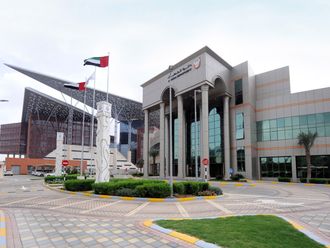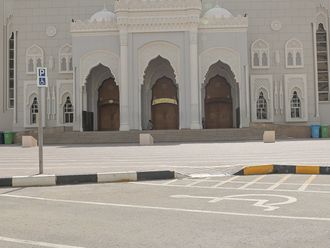Abu Dhabi: Despite the great strides made towards increasing life expectancy in the Gulf Cooperation Council (GCC) countries, a tidal wave of non-communicable diseases among the population could actually mean that people end up living shorter lives than previous generations, top medical experts warned in the capital on Tuesday.
In addition, the economic burden of obesity and its related diseases alone is expected to cost the region about $60 billion (Dh220.3 billion) by 2025, they added at the first Arabian Gulf Public Health Research conference.
Experts therefore called for the establishment and implementation of regional and nation-specific strategies to control the epidemic of non-communicable, chronic diseases.
In the UAE, the recently-announced mandatory enlistment in the military for Emirati males between the age of 18 and 30 years is expected to reduce the prevalence of obesity and related chronic diseases, said Mahmoud Fikri, former assistant undersecretary for preventative medicine and health policy at the UAE Ministry of Health.
“Life expectancy in the UAE is currently about 80 years, and we must stay healthy to maintain this. That is why it is also important for schools to intervene early and regularly check the health and fitness of pupils. Other initiatives, such as ensuring that healthy food is served in school canteens, must also be promoted and implemented,” he recommended.
Dr Mariam Al Jalahma, assistant undersecretary for primary care and public health in Bahrain, stressed that a unified plan to control these diseases has already been developed.
“The plan has been agreed upon by the GCC Health Ministers’ Council, and it includes anti-tobacco measures, healthy eating standards, incentives for physical activity, standards to decrease salt, and other such measures. It has also been updated recently and submitted to the World Health Organisation. What we need now is to implement it nationally,” she said.
According to details revealed at the conference, nearly $40 trillion, representing more than half the current global GDP, could be spent worldwide over the next one or two decades to address chronic illnesses.
Attendees therefore advised the use of smartphone applications and game consoles to stimulate physical activity among children.
“In the United States, we have noticed that many children prefer to get their daily dose of required physical activity through game consoles,” said Dr Wayne Holden, president and chief executive officer of US-based research organisation, Research Triangle Institute.
"For example, they play tennis or undertake interactive fitness programmes. While it is better for them to be outdoors, technology is one way to get them started on exercise."












